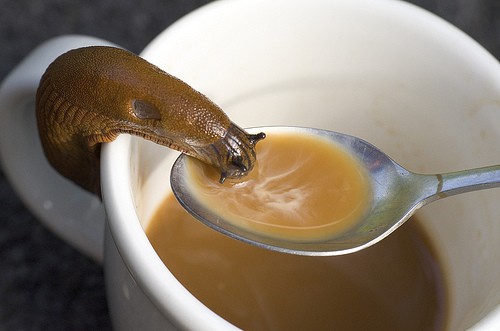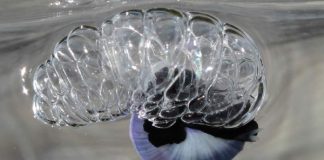We’ve written about the bad coffee harvests in Central America over the past couple months, and that a little fungus called coffee leaf rust is bringing java prices up. Luckily, a hero has arrived, a hero whose stomach and feet are one in the same: a snail! According to the New York Times, a new study shows that an invasive species called the Asian trampsnail loves eating coffee rust, and hates eating caffeine. (They prefer herbal tea.) That means the snails clean the yellow-orange spores off the flora, leaving the coffee free of fungus. They’re like teeny little vacuums, just slimier.
The study, titled “Insights from excrement” (also the name of my forthcoming memoir), was published in January by three ecologists out of the University of Michigan. In their experiments, the ecologists would put one Asian trampsnail on a single coffee leaf covered in rust; on average, 30% of the spores would be eaten up within 24 hours. Not too shabby. All that said, this is still the early stage of research: “a preliminary observation,” one of the ecologists told the Times, just a piece of the puzzle within an incredibly complex, intertwined ecosystem. “Insights from excrement” is also certainly not a call to introduce invasive species to farms—the trampsnail could munch on other plants that growers don’t want eaten up, the ecologists say.
So if you’re not on board with eating bugs quite yet, think of the Asian trampsnails as sort of a gateway. You’re not eating snails, but think about the fungus-chomping gastropods as you sip your morning coffee tomorrow. Slimy, yet satisfying.













